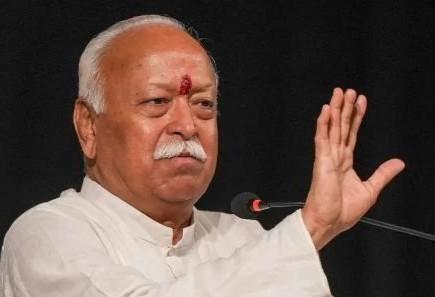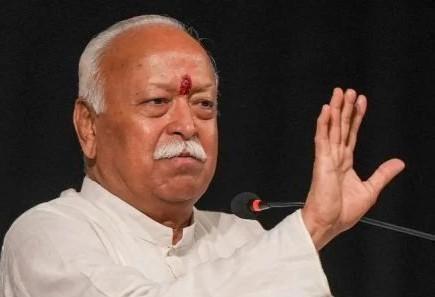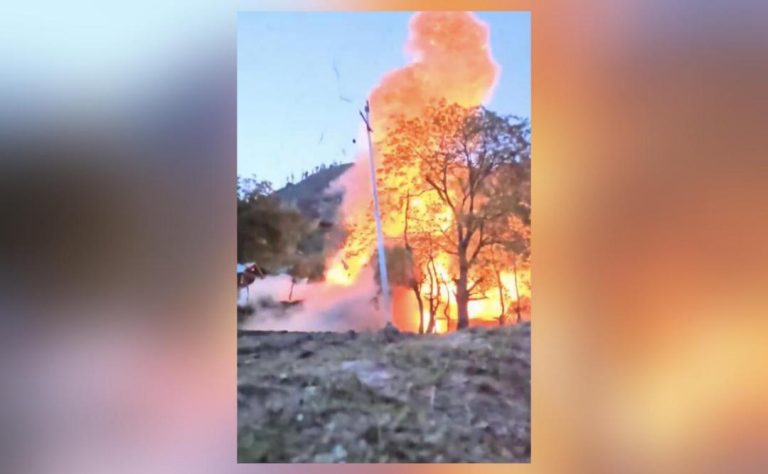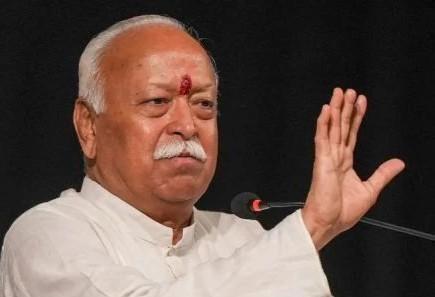
Title: If someone turns to evil then we’ll teach lesson: Bhagwat on J&K attack
The recent terror attack in Pahalgam, Jammu and Kashmir has left the entire nation in shock and outrage. The attack, which claimed the lives of several innocent people, has raised concerns about the increasing threat of terrorism in the region. In response to the attack, RSS Chief Mohan Bhagwat has made a statement that has sparked controversy and debate. In an interview, Bhagwat said that non-violence is India’s religion, but so is teaching a lesson to “oppressors and hooligans”.
Bhagwat’s statement has been widely criticized by many who see it as a justification for violence and a departure from the principles of non-violence that are at the core of Indian philosophy. However, Bhagwat’s words also resonate with many who feel that the nation needs to take a firm stance against terrorism and oppression.
The RSS Chief’s statement is not just a reaction to the recent attack in Pahalgam, but also a reflection of the growing frustration and anger that many Indians feel towards the increasing threat of terrorism in the region. The attack on the Amarnath Yatra pilgrims was not an isolated incident, but part of a larger pattern of violence and intimidation that has been plaguing the region for years.
The Indian government has been criticized for its handling of the situation, with many accusing it of being soft on terrorism and not doing enough to protect the people of Jammu and Kashmir. The recent attack has only added fuel to the fire, with many demanding that the government takes a tougher stance against terrorism and those who support it.
Bhagwat’s statement is not just a reaction to the recent attack, but also a reflection of the RSS’s stance on terrorism and its commitment to protecting the nation and its people. The RSS has long been a strong advocate for Hindu nationalism and has been critical of the government’s handling of the situation in Jammu and Kashmir.
The statement has also sparked debate about the role of non-violence in the face of terrorism. Bhagwat’s words are not a call to violence, but rather a recognition that sometimes, in extreme situations, violence may be necessary to protect oneself and others. This is not a justification for violence, but rather a recognition of the complexity of the situation and the need for a nuanced approach.
The attack on the Amarnath Yatra pilgrims was a brutal and senseless act of terrorism that has left many innocent people dead and many more injured. It is a reminder of the fragility of human life and the importance of protecting it. The Indian government and its people must take a firm stance against terrorism and those who support it, while also working to address the root causes of the violence and to promote peace and understanding.
In conclusion, Bhagwat’s statement is not a justification for violence, but rather a recognition of the complexity of the situation and the need for a nuanced approach. The RSS Chief’s words are a reminder that non-violence is India’s religion, but so is teaching a lesson to “oppressors and hooligans”. The Indian government and its people must take a firm stance against terrorism and those who support it, while also working to address the root causes of the violence and to promote peace and understanding.
Source: https://youtu.be/SpAKVWl5wII



